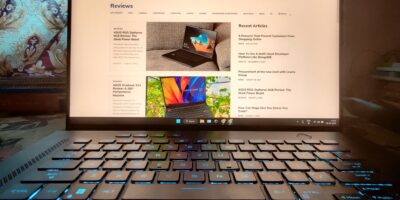In recent years, privacy and security concerns went up to the peak, and this where comes VPN (Virtual Private Network) comes into the picture. Well, there are many reasons why you should VPN, but there are three main reasons behind using it;
- To browse the web anonymously without being tracked.
- Safeguard yourself while using public Wi-Fi.
- Bypass geographic restrictions on websites that you can’t otherwise access.
ALSO READ: 5 Best Free VPNs That You Can Use In 2020 [Best-Of-The-Best]
What Is A VPN?
A virtual private network basically connects your PC or smartphone to another computer (so-called server) somewhere on the internet and allows you to browse the internet using that computer’s internet connection.
![VPN 2 - What Is VPN And Why You Must Use It? [Explained] VPN](https://techdipper.com/wp-content/uploads/2019/09/VPN-2.jpg)
If the connected server is in a different country, it will appear as if you are coming from that country, apparently protecting your identity online. The vast majority of people use VPN for torrenting or bypassing geographical restrictions to watch content available in a different country.
How VPN Protects Your Online Identity?
Internet is not safe and like it or not, your online activity (or in other words your digital footprints) can be tracked by your internet provider and websites. However, website tracking (for the most part) is done for your convenience, like for remembering your preferences. This is why you see adverts for products you looked at recently on Amazon and other sites.
![VPN 1 - What Is VPN And Why You Must Use It? [Explained] VPN](https://techdipper.com/wp-content/uploads/2019/09/VPN-1.png)
So, when you bring a VPN in the picture, it will let you reclaim your privacy and it won’t let websites (until you log in) or your ISP (Internet Service Provider) track you, apparently securing your online activity.
ALSO READ: Ivacy VPN Review: Best Under-Budget Privacy Focused VPN
A VPN becomes very crucial when you are using a public Wi-Fi, here you are more at risk of a hacker intercepting the data sent between your device and the hotspot because most public Wi-Fi’s are open and doesn’t require a password to connect to a hotspot, it means the data isn’t encrypted.
![VPN 4 - What Is VPN And Why You Must Use It? [Explained] VPN](https://techdipper.com/wp-content/uploads/2019/09/VPN-4.jpg)
A VPN adds this layer of encryption, so you can send sensitive data, messages or emails without worrying that someone will be able to view it. Even if someone did manage to intercept the data, all they’d see is gibberish. It’s worth noting that 4G is encrypted, however, free open Wi-Fi network isn’t.
Which VPN Should You Choose?
Selecting a VPN service totally depends on your needs. You can use a VPN from your workplace, or create a VPN server yourself. But the easiest thing to do is simply head to one of the listed (below) VPN services, sign up and download the VPN client for your Windows PC, Mac, Android, iPhone or iPad.
![VPN 3 - What Is VPN And Why You Must Use It? [Explained] VPN](https://techdipper.com/wp-content/uploads/2019/09/VPN-3.jpg)
- NordVPN – We at TechDipper strongly recommend using this VPN for its great speeds and overall functionality.
- ExpressVPN – This VPN is easy-to-use, supports streaming media, all for a cheap price.
- Tunnelbear – This VPN is one click go, is great for use at the coffee shop, and has a (limited) free tier. However, it’s not good for torrenting or streaming media though.
- StrongVPN – This VPN is quite as easy to use as the others, but you can definitely use them for torrenting and streaming media.
All of them have free trials, so you can easily get your money back if you change your mind.
BONUS VIDEO
For the latest tech news, follow TechDipper on Twitter, Facebook, Google+, Instagram and subscribe to our YouTube channel.
![VPN 1 - What Is VPN And Why You Must Use It? [Explained] VPN](https://techdipper.com/wp-content/uploads/2019/09/VPN-1-816x459.jpg)


